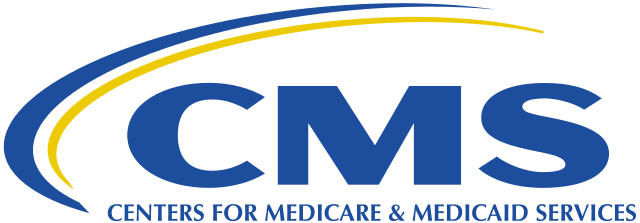Under the federal Anti-Kickback Statute, a company commits fraud when it offers doctors and other healthcare providers financial incentives to use the company’s products or services.
What is the Anti-Kickback Statute? The Anti-Kickback Statute is a healthcare fraud and abuse statute (42 U.S. Code §1395nn). The statute prohibits the exchange of remuneration, or anything of value, to encourage referrals for services that are reimbursable by federal healthcare programs, such as Medicare or Medicaid.
Many reasons prompted the creation of the Anti-Kickback Statute, including findings that kickbacks increased the following:
- Costs of healthcare services such as Medicare, Medicaid, and other programs;
- Corruption of medical decision making;
- Guiding patients away from valid services or therapies;
- Unfair competition; and
- Overutilization of medical services.
The Anti-Kickback Statute applies to all federal healthcare programs.
The History of the Anti-Kickback Statute
The Social Security Act was created in 1935. The act is meant to provide a federal safety net for unemployed, aged, and disadvantaged Americans. The Act included a statute prohibiting misinformation of facts pertaining to the Act. In 1972, Congress amended the law to prohibit soliciting, offering, or receiving of “kickbacks,” bribes, or rebates. Violations constituted misdemeanors. However, the misdemeanor classification did little to lessen offenses. Instances of fraud and abuse continued rising within the healthcare system. In 1977, the Act redefined violations as felonies. The law was further amended in 1980, providing that violations must be committed with knowledge and intent.
What is Considered a Violation Under the Anti-Kickback Statute?
Under the federal Anti-Kickback Statute, a company commits fraud when it offers doctors and other healthcare providers financial incentives to use the company’s products or services. The rule applies to services completed under Medicare, Medicaid, or any other federally funded healthcare program.
The case of United States v. Greber in 1985 provided that “remunerations” include payments that compensate a healthcare provider for their services. If the payments have a dual purpose of encouraging the physician to use company services, then they violate the Anti-Kickback Statute.
Penalties for Anti-Kickback Statute Violations
Penalties for violations include both civil and criminal penalties. Criminal penalties include a monetary fine of up to $25,000 and up to five years imprisonment.

Matthew Ansley via Unsplash, www.unsplash.com
Additionally, civil penalties may amount to $50,000 per violation plus up to three times the amount of any government overpayment. Frequently, violations also include a period of disbarment of the medical professional involved in the transaction.
Furthermore, violations may also exclude the medical professional from participating in federal government programs like Medicare, Medicaid, and other federal plans to provide healthcare. Penalties imposed involve both parties to the transaction.
A violation of the Anti-Kickback Statute also exposes the parties to liability under the False Claims Act.
What Are Safe Harbor Regulations?
Some payment and business practices appear to violate the Anti-Kickback Statute. However, these practices are protected under “safe harbor” regulations. A “safe harbor” specifies that certain conduct does not violate a statute or regulation. The statute itself outlines the specific circumstances that qualify for safe harbor.
Examples of safe harbor provisions under the Anti-Kickback Statute include the following:
- Investment Interests. In most cases, remuneration does not include payments that are a return on investment interests, such as dividends or interest income, made to an investor.
- Lease or rental of office space. Remuneration does not include any payment made between a lessee and a lessor for premises.
- Equipment rental. If specific criteria are met, rental payments for the use of equipment does not violate the Act.
- Personal services and management contracts. Payments made by a principal to an agent is compensation for the agent’s services, so these contracts do not qualify as remunerations under the Act.
- Sale of practice. If a practitioner sells their practice to other practitioners, this does not qualify as a remuneration under the Act.
- Referral services. Exchanges of anything of value between an individual or entity and a professional referral service is not remuneration..
Find the complete list of safe harbor provisions here.
What is the Stark Law?
The Stark Law (42 U.S.C. 1395nn) prohibits physicians from making self-referrals to federally funded patients. Referrals under the Stark Law apply to designated health services. Additionally, referrals may not be made to entities in which the referring physician, or a family member of the referring physician, holds a financial interest.
Examples of designated health services governed by the law include the following:
- Clinical tests;
- Physical therapy, occupational therapy, speech pathology services;
- Radiology and other imaging services; and
- Radiation therapy.
The Stark Law provides for steep financial penalties, typically higher than violations under the Anti-Kickback Statute. Penalties for violating the Stark Law include the following:
- Refund of money received by physician and entities;
- Payment of civil penalties up to $15,000 for each person involved;
- Three times the amount of payment received from the designated health services within the Medicare program;
- Exclusion from the Medicare program; and
- Payment of up to $100,000 for each referral scheme.
The Stark Law is a strict liability statute and requires no proof of intent.
Additionally, as contrasted with the Anti-Kickback Statute, the Stark Law is a civil law, whereas the Anti-Kickback Statute is a criminal statute.
However, similar to the Anti-Kickback Statute, the Stark Law provides exceptions to the prohibition within the law.
Exceptions to the Stark Law
The Stark Law makes exceptions if the financial interest meets an approved exception. Exceptions under the Stark Law typically relate to compensation, ownership, and investment.
The Stark Law allows exceptions under the following circumstances:
- The financial interest must comply with Medicare and Medicaid program requirements;
- The financial interest must not violate the Anti-Kickback Statute or any other federal or state law; and
- The amount of compensation paid and volume of referrals must not be excessive.
Examples of common exceptions include:
- In-office ancillary services exception. An in-office ancillary services exception applies to group medical practices and referrals within the same office.
- Fair market compensation exception. This exception applies when a compensation agreement is in writing. The compensation agreement must provide a timeline and compensation. The agreement must be reasonable. Additionally, the agreement must qualify as a safe harbor exception to the Anti-Kickback Statute.
- Indirect compensation exception. An indirect compensation agreement qualifies as an exception. The compensation agreement between a physician and entity must reflect fair market value, must be in writing and signed by both parties, and cannot vary compensation based on the volume or value of referrals.
- Non-monetary exception. This exception applies to non-monetary compensation of up to $300 to a physician. The physician must not solicit compensation. Additionally, the amount of compensation must not be based on the value or volume of referrals.
Additional exceptions also exist under the Stark Law.
Whistleblower Protection Under the Anti-Kickback Statute and the Stark Law
Due to complexities within the federal medical system, uncovering violations of the Anti-Kickback Statute and the Stark Law is difficult. However, the federal False Claims Act provides an avenue for whistleblowers to disclose fraud and other violations.
Through the False Claims Act, those with knowledge of fraud against a federal government program, like Medicaid or Medicare, may file a case on behalf of the government. First created in 1863, the False Claims Act (31 U.S.C. §§ 3729-3733) also permits the government to pursue perpetrators of fraud.
These lawsuits are called qui tam lawsuits.
If a whistleblower prevails in a qui tam lawsuit, the whistleblower is entitled to receive 15–30% of the government’s recovery to incentivize reporting of the Anti-Kickback Statute or Stark Law violations.


Join the conversation!